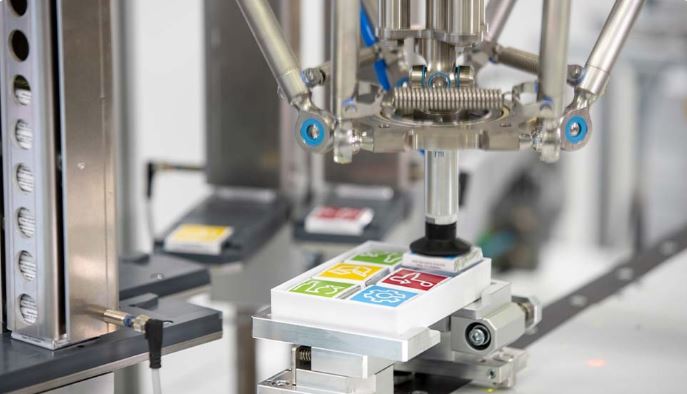Significant changes have occurred in the market in recent years, one of which is the integration of advanced industrial control systems. These systems include a range of technologies and methodologies that are transforming the way industries operate, enhancing efficiency, safety, and productivity.
Understanding Industrial Control Systems
Industrial control systems (ICS) are a collection of devices and systems used to monitor and control industrial processes. They are important for automating and controlling various industrial operations, including manufacturing, energy production, and processing industries.
Key Components of Industrial Control Systems
There are some key components of Industrial Control Systems, which are:
Programmable Logic Controllers (PLCs): PLCs are strong computing devices used for the automation of industrial processes, such as the control of machinery on factory assembly lines.
- Distributed Control Systems (DCS): DCS are used to control production systems within a local area, offering high reliability and actual-time data processing.
- Human-Machine Interfaces (HMIs): HMIs are user connections that link operators with the ICS, allowing them to interact with and control machinery.
Theories and Frameworks Supporting Industrial Control Systems
Some theoretical frameworks support the design and implementation of industrial control systems (ICS). Understanding these theories helps one appreciate the complexity and efficiency of modern ICS.
- Cyber-Physical Systems (CPS):
- Integration of computation with physical processes.
- Use of sensors and actuators to interact with the physical environment.
- Real-time feedback loops for adaptive control and self-optimisation.
- Control Theory:
- Focuses on the behaviour of dynamical systems.
- Application of mathematical models to design controllers that regulate system behaviour.
- Key concepts include stability, responsiveness, and robustness.
- Systems Theory:
- Interdisciplinary study of complex systems in nature, society, and science.
- Focuses on the interdependence and interaction of system components.
- Utilises ICS to manage complex industrial processes.
- Lean Manufacturing:
- Implies on minimising waste and maximising productivity.
- Implementation of Just-In-Time (JIT) production and continuous progress.
- Use of ICS to monitor and streamline production processes.
- Industrial Internet of Things (IIoT):
- Interconnected devices network that collects and exchanges data.
- Advanced monitoring, control, and predictive maintenance capabilities.
- IIoT integration with ICS for real-time analytics and decision-making.
Transforming Production with Advanced Industrial Control Systems
By incorporating advanced industrial control systems, you can create a huge transformation in the production process. Here are some of the ways in which these systems can make a significant impact:
Improves Efficiency and Productivity
Industrial control ensures to maintain and upgrade the overall efficiency through:
- Automation: By automating repetitive and complex tasks, ICS reduces human error and increases production speed.
- Actual-Time Monitoring: Continuous monitoring of processes ensures that any deviations are quickly identified and corrected, minimising downtime.
- Predictive Maintenance: ICS can predict equipment failures before they form, allowing for proactive maintenance and reducing unexpected outages.
Improved Safety and Compliance
Safety and security are significant factors in your business; hence, by integrating control systems, you can ensure the following:
- Safety Protocols: ICS integrates safety and security protocols to safeguard labour and equipment and reduce the risk of accidents.
- Regulatory Compliance: Automated systems ensure that production processes abide by industry standards and regulations, avoiding legal issues and fines.
Cost Savings
Due to some major complications, the overall budget can be disrupted. However, with the help of an industrial control system, you can:
- Energy Efficiency: ICS optimise energy usage, reducing the operational costs and environmental impact.
- Resource Management: Efficient use of materials and resources minimises waste and lowers production costs.
- Cost of Labour: Automation reduces the need for manual labour, leading to significant cost savings.
Quality Control
One of the important aspects of industrial control is controlling quality, which can be done through:
- Consistency: Automated control systems ensure consistent product quality by maintaining precise control over production parameters.
- Traceability: ICS provides detailed records of production processes, enabling traceability and accountability.
Driving Efficiency and Innovation with Industrial Contro System
Advanced industrial control systems are changing production processes across various industries. By enhancing efficiency, safety, and quality, these systems are driving significant improvements in industrial processes.
Partnering with reputable energy brands can further improve these benefits, paving the way for a more efficient and sustainable industrial future.

